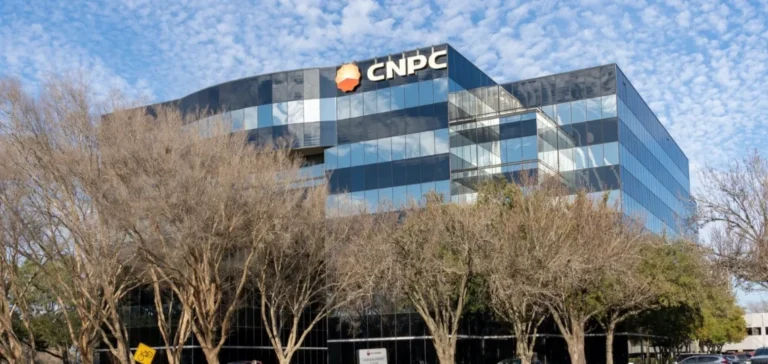The sanctions target a trading entity based in Hong Kong and a refinery integrated within China National Petroleum Corporation (CNPC). Pipeline supplies linking the Russian Federation to the People’s Republic of China total about 800,000 barrels per day, with roughly 600,000 barrels per day via the Eastern Siberia–Pacific Ocean (ESPO) route and about 200,000 barrels per day through the Kazakhstan–China corridor. This overland architecture reduces reliance on maritime services subject to European restrictions. Frictions concentrate on financing, insurance, and brokerage provided by counterparties under the jurisdiction of the European Union (EU).
Regulatory scope and compliance
The European perimeter restricts access to services by EU persons and entities for listed counterparties, triggering enhanced know your customer (KYC) diligence and stricter proofs of origin. Contracts include attestations of non-exposure to prohibited services, reinforced traceability of transport segments, and updated insurance certificates. Interactions with the Office of Foreign Assets Control (OFAC) and the Specially Designated Nationals (SDN) list increase caution among banks and reinsurers. Processing timelines lengthen due to contract re-papering and procedural updates.
The group-affiliated Bank of Kunlun supports renminbi (RMB, yuan) settlements to limit the use of correspondents exposed to Western currencies. European institutions tighten issuance of letters of credit and risk cover for listed counterparties. Protection and Indemnity (P&I) clubs adjust their lines, shifting demand toward insurers located outside the EU. The measurable effect is higher compliance costs and more selective services, without altering pipeline volumes.
Physical chain and volumes
The Liaoyang refinery, operated by PetroChina Company Limited (PetroChina), is configured around a capacity near 180,000 barrels per day with a predominantly ESPO pipeline feed. The facility communicated a fourth-quarter processing target of 2.33 million metric tons to reach 8.8 million metric tons on an annualized basis. Monthly jet fuel exports of around 40,000 metric tons can be reallocated to other group sites when compliance constraints arise. Overland flows remain prioritized due to lower exposure to restricted maritime services.
The independent Shandong Yulong Petrochemical complex has a capacity of about 400,000 barrels per day and faces reduced availability of non-Russian grades when insurance and financing become more selective. The feedstock basket incorporates more discounted Russian barrels as non-Russian sellers withdraw or renegotiate. Intra-group and regional arbitrage optimizes distribution between domestic supply and product export commitments. Logistics favor overland routes when maritime conditions increase costs.
Financial services and brokerage
Letters of credit, bank confirmations, and trade finance in foreign currencies become more restrictive for operations involving listed entities. Brokers and inspection firms impose reinforced controls on ownership chains, insurance, and chartering. Contracts migrate toward RMB settlement schemes with relay banks minimally exposed to sanctions regimes. Insurance and reinsurance costs rise on associated maritime flows, while pipeline flows maintain a more stable cost structure.
The trading subsidiary Chinaoil (Hong Kong) reallocates certain functions to other CNPC group entities to secure access to non-European services. These reorganizations generate transitional costs and timelines for adapting internal procedures. European service providers reduce their appetite for such operations, lowering service liquidity within these jurisdictions. Demand shifts to platforms and providers located outside the EU, with regional actors gaining traction.
Market effects and investments
In North Asia, differentials tighten when refineries constrained by compliance prioritize discounted barrels, narrowing availability of alternative grades in specific windows. Contract models incorporate reinforced attestations, non-exposure clauses to European services, and adapted settlement calendars. Investments focus on integrating critical functions: domestic insurance, RMB financing, and local inspection and certification. Companies direct logistics spend toward chains less dependent on European providers at sensitive links.
For affected counterparties, physical pipeline flows remain stable while transaction costs rise in international trading. Jet fuel and distillate export portfolios are reallocated within integrated groups to preserve domestic supply. Internal governance strengthens the segmentation of operating entities to isolate regulatory risk. Risk dashboards incorporate second-order scenarios tied to evolving lists and correlated compliance requirements.
Hypothesis(es)
The EU employs a compliance-and-services lever to increase operating costs for Russian crude purchases by Chinese entities without disrupting pipeline flows; financial and insurance frictions rise, but overland volumes remain unchanged.
Strategic consequences
Potential narrowing of discounts on Russian barrels as constrained demand reorganizes. Wider use of renminbi settlements and increased reliance on non-European service providers to secure execution. Priority investments in integrating insurance, financing, and inspection within domestic jurisdictions. Stronger internal arrangements to isolate risk by entity and function.
Points to monitor
Publication of implementing annexes and transition windows in the EU Official Journal. Intra-group reallocation of jet fuel volumes among Chinese refineries. Asian banks’ appetite for RMB clearing under secondary sanctions risk. Evolution of P&I coverage offered outside Europe. Declaratory adjustments by producers and state-backed buyers in compliance reports.






















